Are you tired of keeping track of your bills and payments each month? Changing your billing cycle can simplify your financial life and help you manage your budget more effectively. In this article, we'll guide you through the simple steps to request a change in your billing cycle and discuss the advantages it brings. So, let's dive in and discover how you can tailor your billing experience to fit your lifestyle!
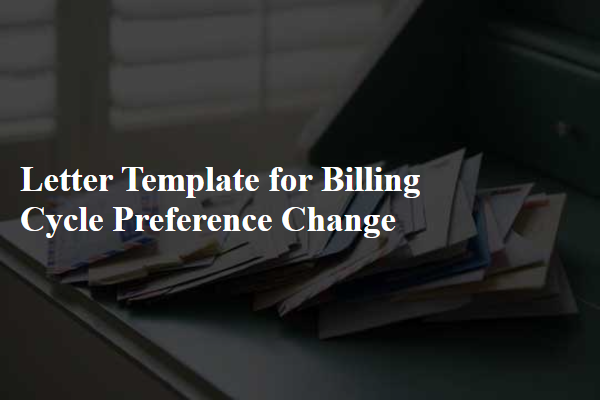
Clear Identification of Customer Details
Updating billing cycle preferences enhances customer satisfaction and financial management. Customers should provide clear identification details such as full name, account number (for instance, 123456789), and service address (specific street, city, state, and zip code) to ensure accurate processing. Contact information like a valid email address (example: customer@example.com) and a phone number (e.g., (555) 123-4567) is also crucial. Notifying customer service representatives about preferred billing cycle options, such as monthly, quarterly, or biannually, ensures alignment with individual financial planning. Proper identification minimizes errors, streamlines communication, and fosters a seamless transition to new billing terms.
Precise Description of Requested Change
Changing billing cycle preferences can help customers manage their finances more effectively. For example, a transition from a monthly billing cycle to a bi-weekly schedule may align better with income payment schedules, enhancing cash flow management. Customers often request such changes based on factors such as varying income sources or personal budgeting strategies. Another common change is switching to a quarterly billing cycle, providing individuals with fewer payment deadlines throughout the year. This adjustment reduces the frequency of transactions, allowing for easier tracking of expenses and potentially minimizing late payment fees. Customers typically submit these requests through customer service channels or online account management platforms.
Specific Effective Date for Change
Changing billing cycles can provide users with better financial management tailored to their specific needs. Customers often prefer to set effective dates for billing cycle modifications, ensuring alignment with their income schedules. For example, a customer may wish to change their billing date to the 1st of the month following a pay period, enhancing cash flow management. Effective dates (like January 1, 2024) should be clearly communicated to avoid confusion. Such adjustments can influence customer satisfaction and retention in service-based industries, such as utilities, telecommunications, or subscription services. Setting specific effective dates allows for seamless transitions and helps in maintaining uninterrupted service.
Acknowledgment of Current Billing Terms
A customer currently enrolled in a monthly billing cycle, which repeats every 30 days, has expressed a desire to change their billing cycle preference. This customer regularly receives detailed invoices highlighting payment amounts and due dates, typically paid via credit card. Each billing cycle involves a total of $50 charged to the customer's account as outlined in the terms and conditions. Acknowledgment of current billing terms indicates a clear understanding of these conditions, including potential fees for late payments that can reach up to $10. The request for a new billing preference may involve transitioning to a quarterly billing cycle, which could adjust cash flow management for both the customer and the service provider.
Contact Information for Follow-up or Confirmation
A billing cycle preference change must include crucial contact information for follow-up or confirmation, ensuring seamless communication with service providers or financial institutions. Include a clear header that states the customer's full name, account number (typically a unique identifier such as 123456789), and the service address (the physical location tied to the account, such as 123 Main Street, Cityville, State, ZIP code 12345). Additionally, provide a reliable email address (like customer@example.com) and a phone number (including area code, e.g., (123) 456-7890) for any clarifications or confirmations related to the billing cycle. This detailed contact information fosters accountability and facilitates efficient correspondence during the preference change process.

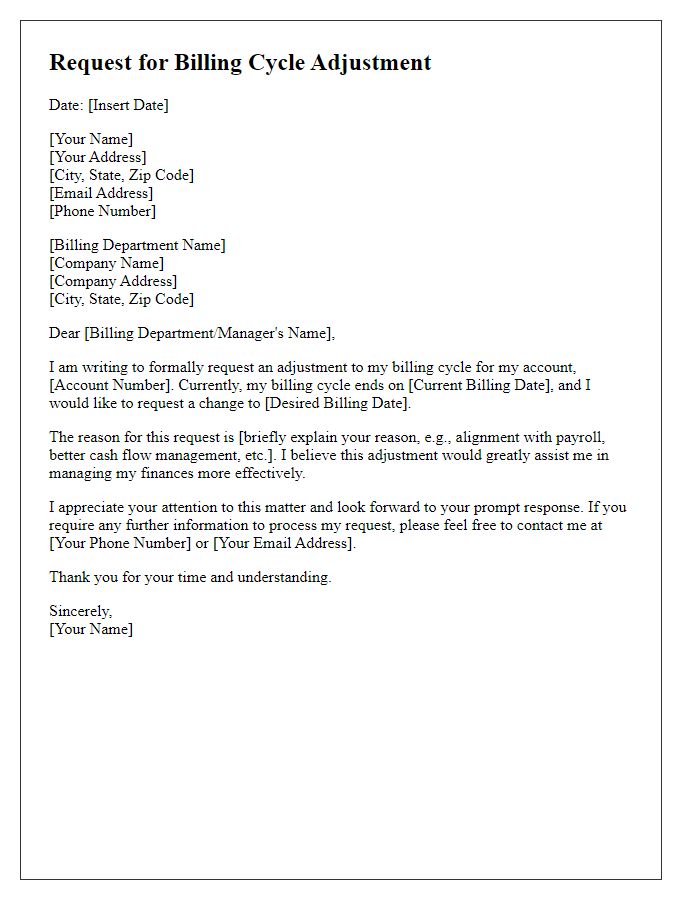
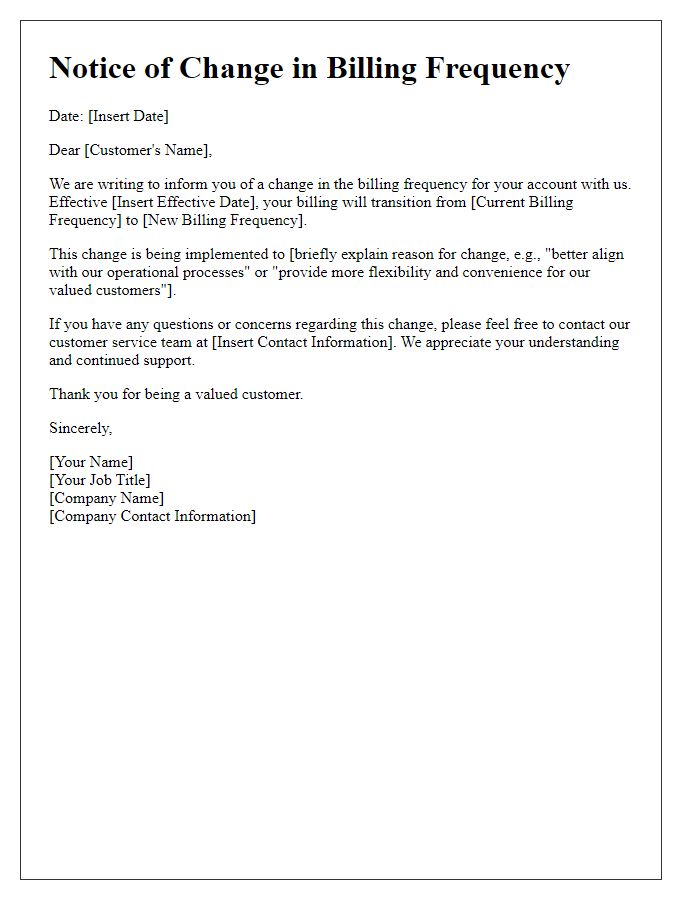
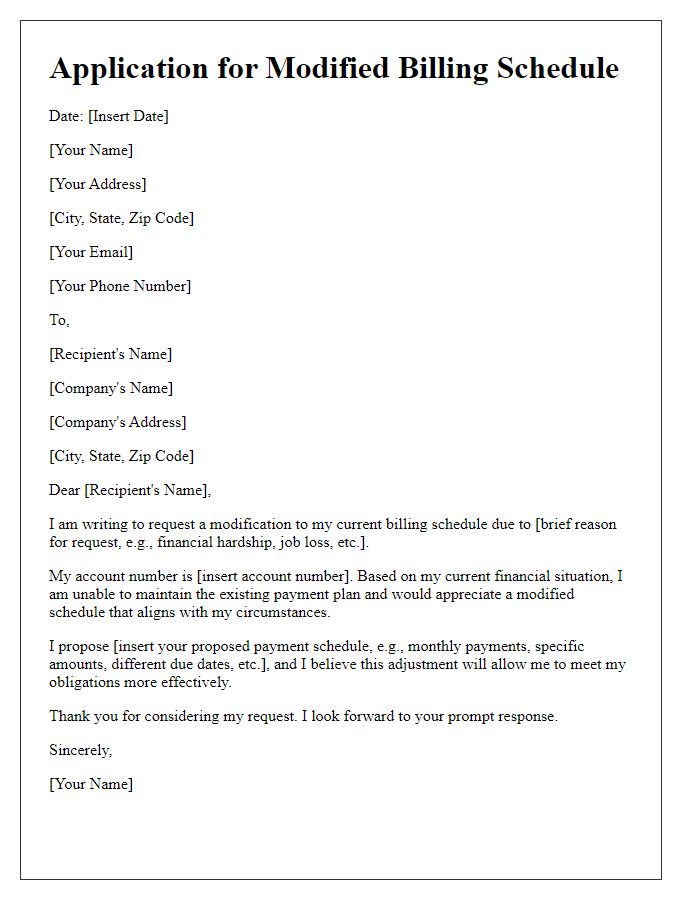
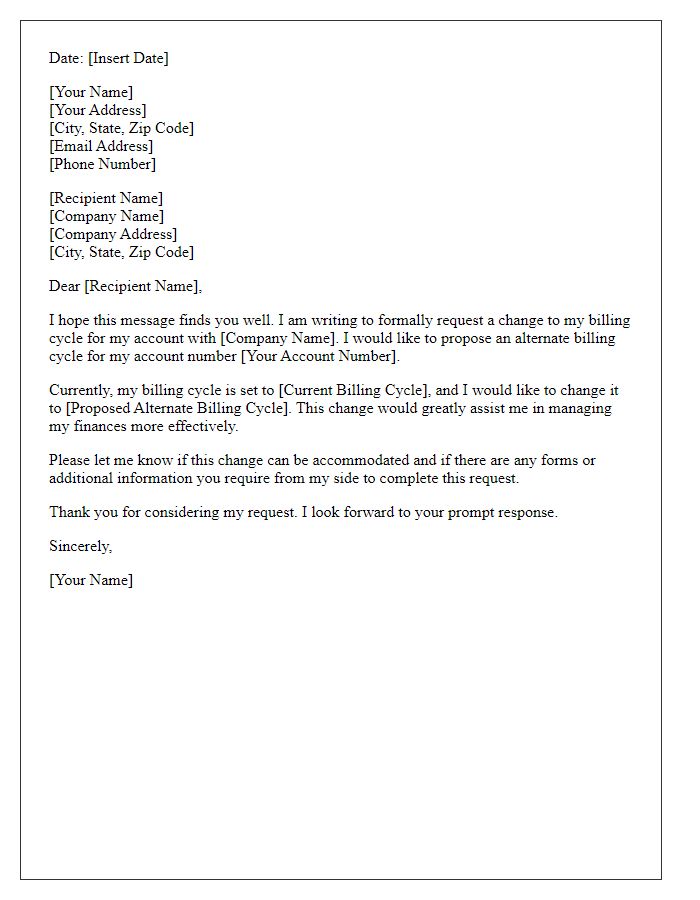
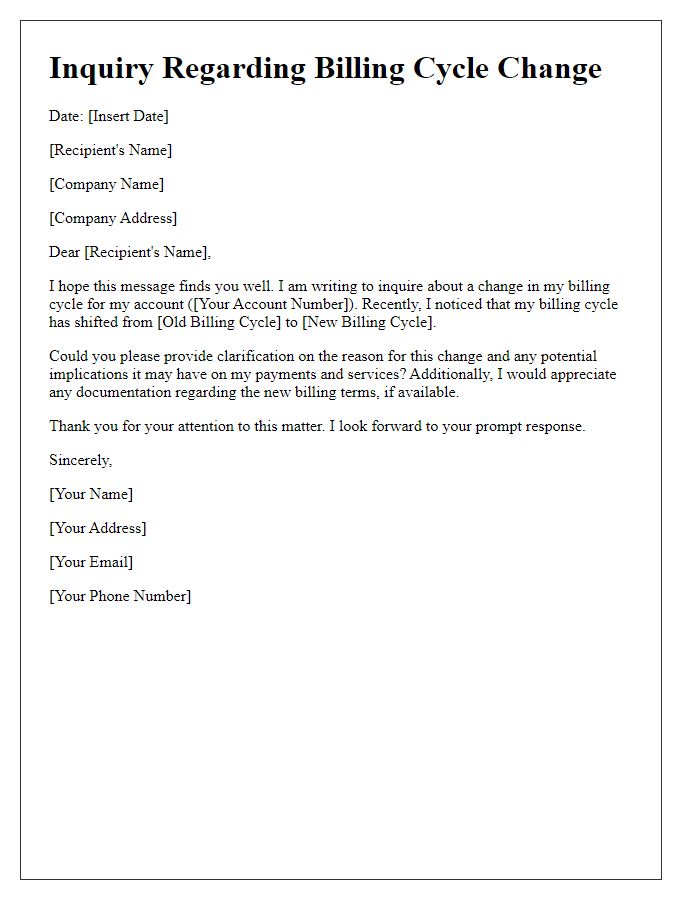
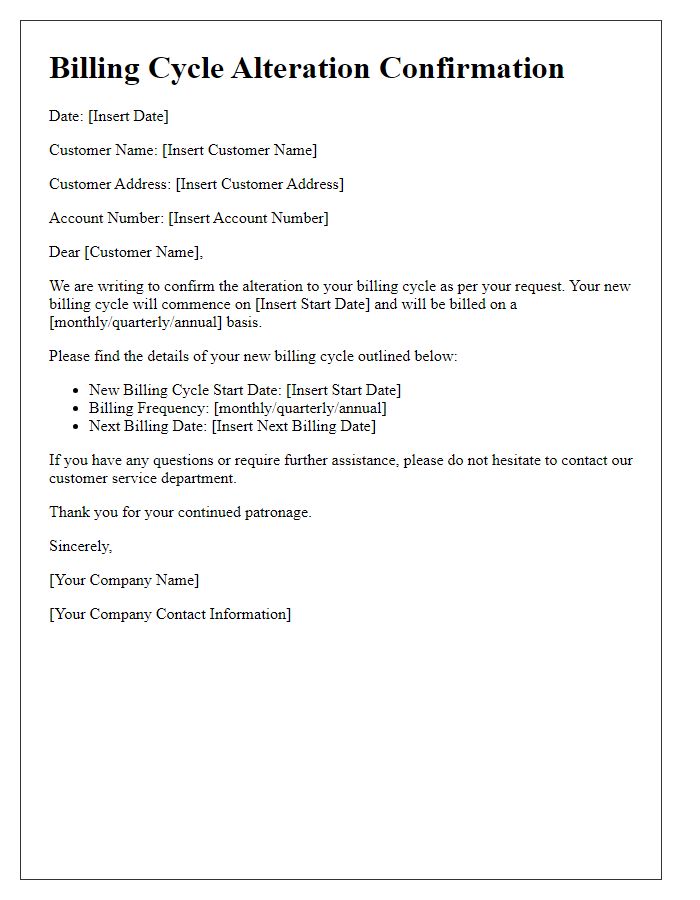
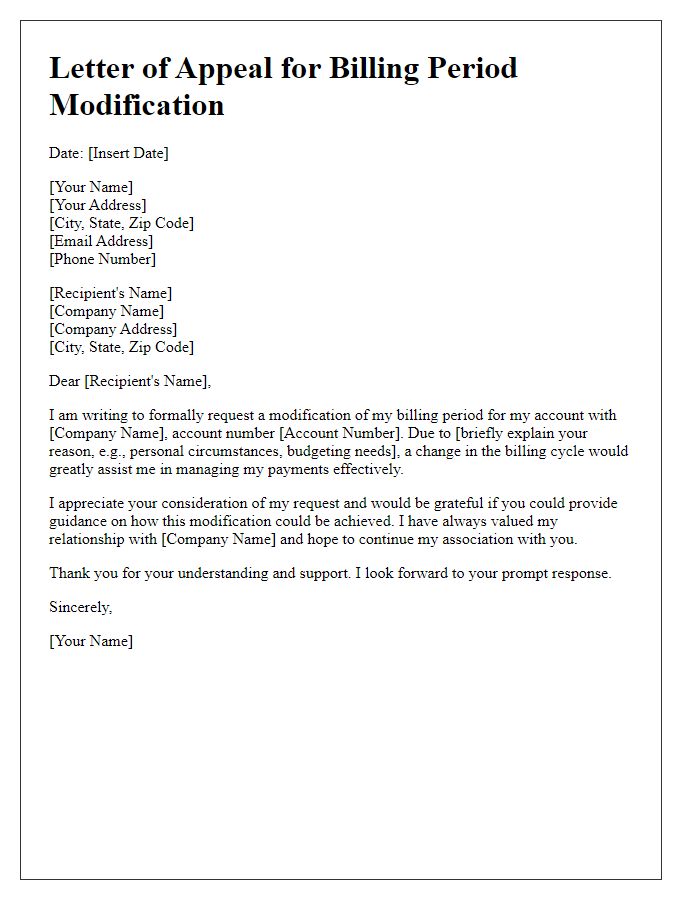
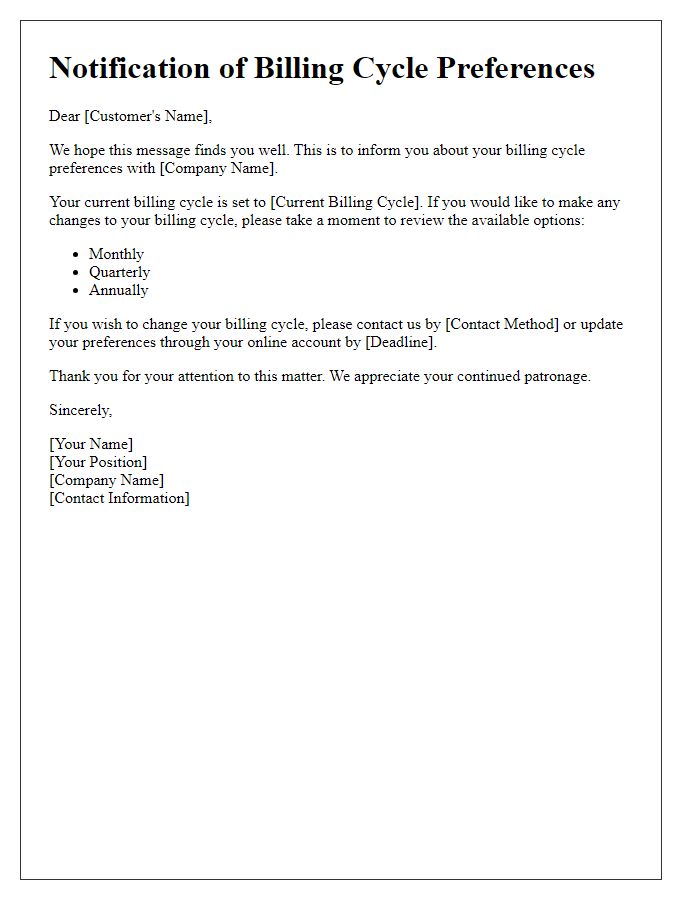
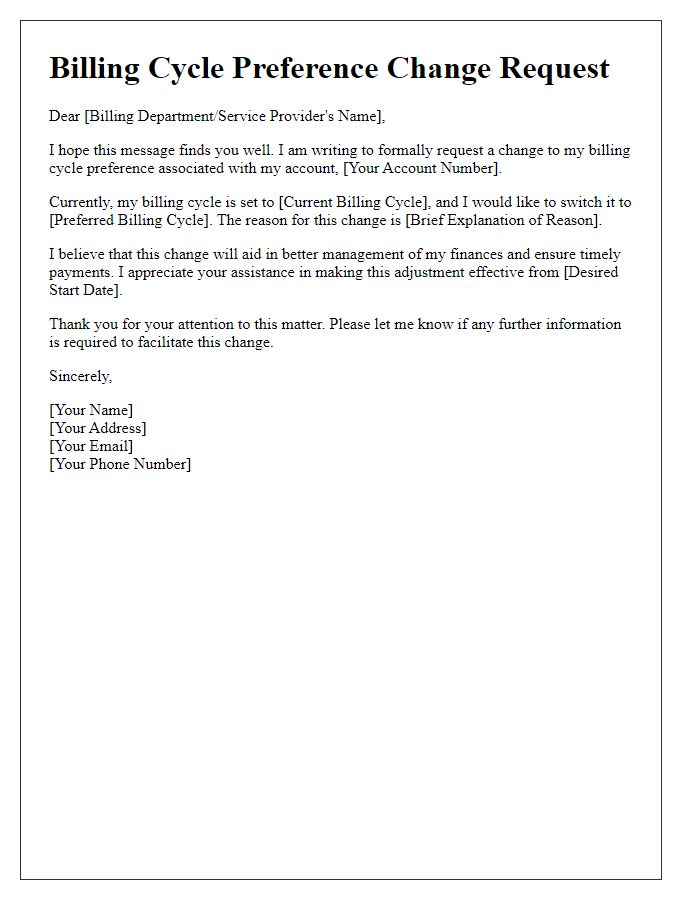
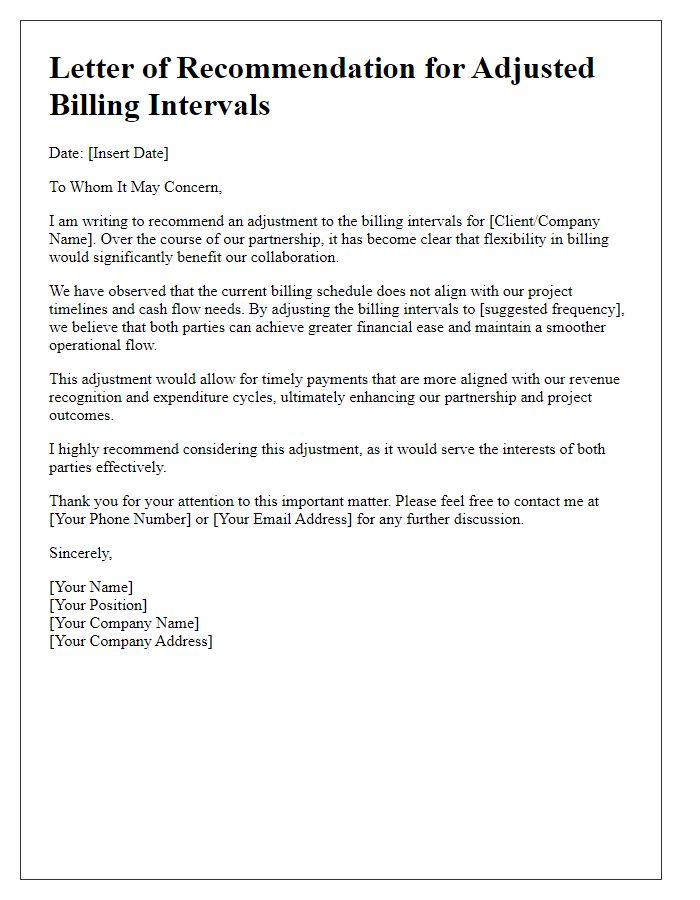


Comments